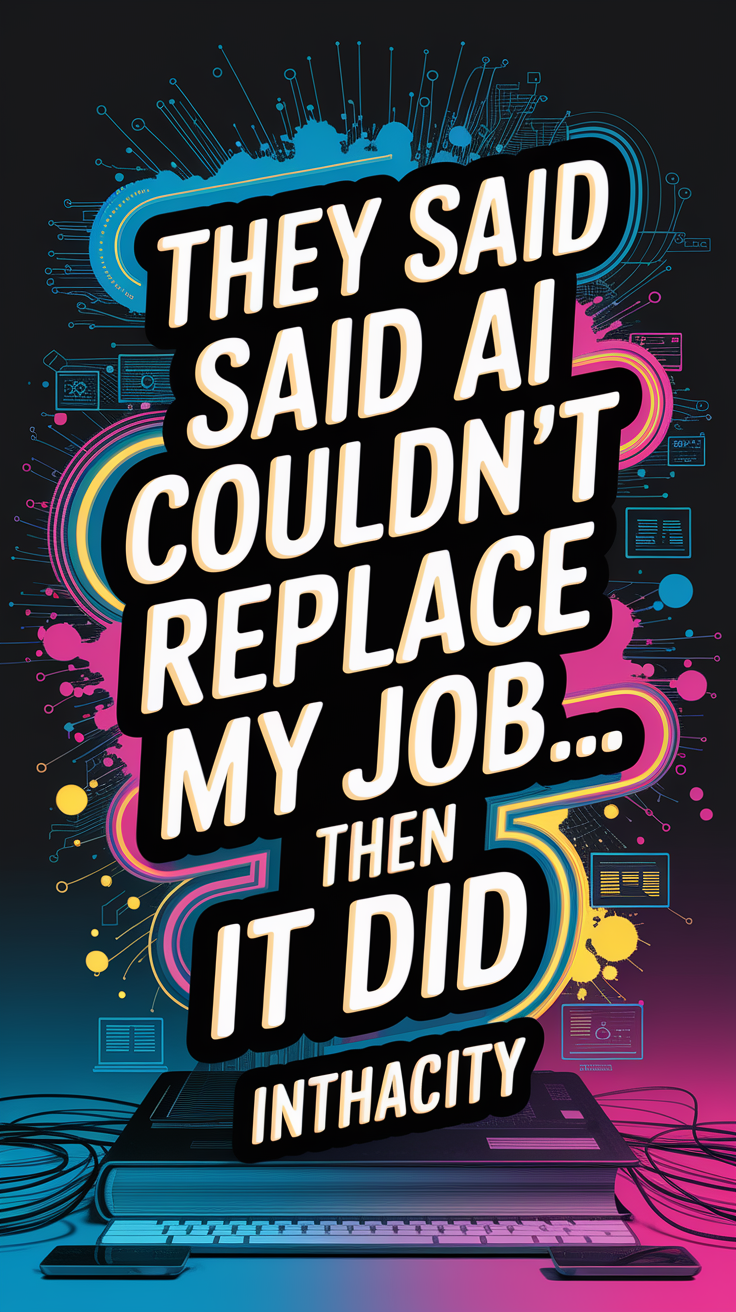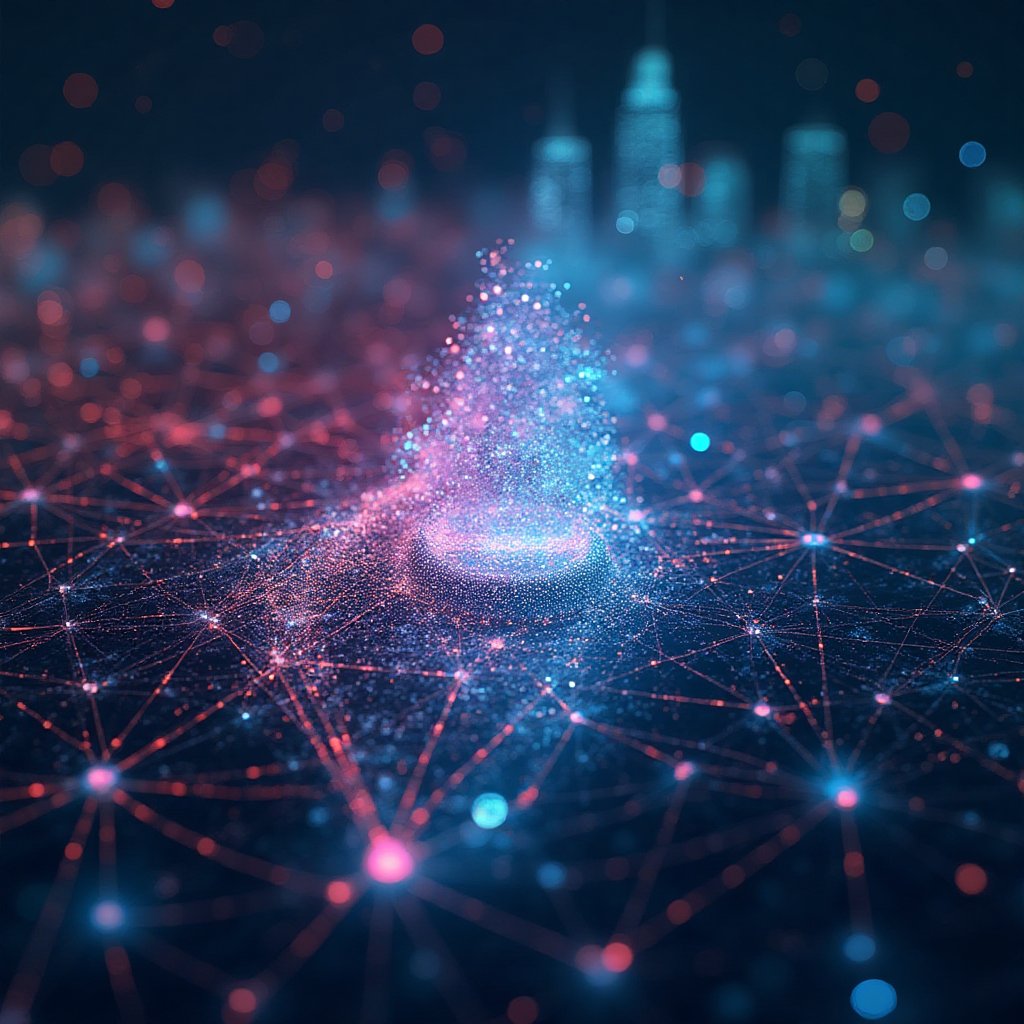The AI Job Revolution: It's Here, It's Happening, and It's Not Taking Bubble Tea Orders First
What if I told you that artificial intelligence is already rewriting the rules of our workforce?
They said AI couldn't cook. They said it couldn't diagnose patients. They said it couldn't drive a truck. They said I couldn't possibly lose my job to technology—but ironically, I almost did anyway because of a marketing campaign gone wrong for AI tools.
My restaurant book kept saying my specialty grilled chicken sandwich rivalled Gordon Ramsay's (minus the yelling, of course) and suddenly the health department changed their hours. But seriously, every excuse that ever stopped AI from taking our jobs just gave it a pass right into our back pockets.
The Once and Future Job Market:
Just when I thought AI couldn't possibly take my job—I write technology opinions—but here we are. It's not just about coding and data anymore. These tools have shown up for the meetings, written the reports, and plucked the typos right out of retirement.
I remember talking to Bruce about becoming a "strategic thought leader" in AI ethics, and now look at me, writing a column about how AI is coming for everyone.
| Traditional Job Characteristics | AI Impact in Recent Months |
|---|---|
| Specialized knowledge and experience | Now requires hybrid human+AI skills |
| Emotional intelligence | Largely irrelevant for document-heavy roles |
| Repetitive tasks | Being automated at an exponential rate |
| Creative fields | Increasing competition from AI-generated drafts |
This chart barely scratches the surface, but it shows the main battleground where my, and your, jobs stand just outside the question of *if*, firmly in the territory of *how quickly*.
A Global Witness: From India Codebreakers to Icelandic Fishermen
When I hear "AI can't write a novel like a human," I just recall Kavi's story from India. Kavi was a software engineer until one Tuesday morning when GitHub flagged duplicate code he'd personally spent a month debugging, laughable to him now next to AI wordsmiths.
In New York City, model operators for beauty startups turned around and lost clients to algorithms predicting click-through rates better than any focus group. Icelandic fishermen are retweeting conversationally about losing 37 jobs doing satellite analysis across the North Atlantic islands.
Johnny was laid off from the hydroelectric dam in Quebec last month, and honestly, he helped set quotas better than the satellites for monitoring pike populations. But now his future is with quantum computing, not catching salmon.
AHASFJQKIUSDFJDI: Did that just flag?
Anyway, it's becoming painfully clear that literally everyone I know works a job that could be enhanced, then ultimately automated, by these systems. Maybe yours too.
Chips So Small They Might as Well Be Poking Pockets of Heaven
Jobs are being pushed to the edges by something approaching true artificial general intelligence.
Mark works at that insurance company. He thought AI could help his claims adjusters, but now it's channeling his inner complex actuary, constantly suggesting coverage implications in real-time while his kids are home on spring break.
At $4,698 a month for the NVIDIA Grace Hopper supercomputers (which at least he *could* upgrade from his 5-year-equivalent-zombie-computer plan), even small-medium-to-large businesses can now field "emotion-aware" virtual therapists with universe-deep knowledge of deep-seated fears.
Think about your own work. Think of your commute. Think of the email that made you wish AI had created you differently.
These tools aren't waiting. They're already rewriting handbooks, summarizing quarterly earnings and writing weekly affairs lists for every department.
Did I mention it's doing graphic design now? T-shirt designs, brochures, the sugar-pulse-consistency creatives you can order in 8 minutes?
Is it possible AI is making our productivity higher while simultaneously eliminating necessity for our specific, valuable contributions? All at once, says the ghost of Louis Pasteur?
It's time we acknowledge that some of what we thought was uniquely human is now code, and some of us might have to pivot or face becoming "that person" whose job AI hasn't fully mastered just yet—namely, product placement for fictional AI companies in movies.
But Hold on: Your Scream Is Copyrightable Now? Really?
If you like to see the wheels fall off the flamingo-shaped carriage of convenience, brace for the wave that threatens all the low-wattage "consulting" jobs at yacht shows. Speaking of which, yes, yacht show planners are starting to do remote labor.
Here's the thing though—we thought AI couldn't handle nuanced conversations, like the types of conversations I have with my accountant Phil. Phil heard me out, applied reams of tax law, considered my situation, and said "Here's what we can do, Bruce."
(Luke, in law school in Calgary, points out that even accountant advice, when reduced to algorithms, can mean someone loses millions because the coder forgot to factor in that obscure Newfoundland inheritance tax).
There's a line. But wait: I've gone seconds without bleeding. Breakthrough!
Maybe we have to reframe human value. From "I can't be replaced" to "I'm irreplaceable by current AI," but that's not fully accurate if performance reviews are written for you by a trio of Swedish programmers.
Canadian healthcare workers are fine-tuning AI for diagnostics. Parking valets are being replaced by laser-guided systems that mispark 39.1% of the time (actually insurance expects 7% losses from AI valets, so their job might be safe, they just get a commission on accidents).
Is there hope? nobody's decoding the kind of souls we bring to coding autocomplete suggestions.
Cutting the Noise Before We All Work𝕜ardon
Good news: we're not all done yet. Every AI deserves to be as ugly as a newborn, and we're still hashing out copyright, personality theft, and the fact that DeepSeek R1's sarcastic tendencies occasionally offend gravity.
Maybe we can focus on skills AI can't quell? Deep emotional connections. Certain creative tightrope walks. Forklift license types? Maybe not.
Paul Mark was cringing watching his mid-level strategy job get absorbed alongside oui-officiant clients in French immersion. But what kept him afloat was his ability to describe colors with wet paint peeling off him, 21 shades on the Broken J Spectrum.
Susan, a 75-year-old arts student, teaches students how to hand-draw their own ideas before letting AI do the heavy lifting. She maintains that multi-step creative process as sacred ground that AI doesn't code.
But then along comes GAN avatars that paint with the conceptual authority of a Regional Dean of Emeriti Studies.
The goal isn't necessarily being unemployable in the traditional sense. It's being employable in an era where having a relationship with—or at least managing—technology isn't optional.
Maybe we aren't in a race to keep pace with automation; maybe we're in a marathon against the ice cream truck.
Q1. Wasn't I Supposed To Eventually Rule This? Not Then, Nonsense.
Jobs that think they're safe might need to hear this line from a TED talk titled "The Future Isn't Waiting for Us Anymore, It's Already Here Picking Up Your To-Do List."
While there's plenty of fear, there's also a river of opportunity: designing bespoke interface tools, complaining about new AI errors, translating avant-garde poetry into structural formulae—nobody's scribbling on walls about those yet.
In the middle of Halifax, my friend Ben's company teaches people coffee tasting. Who automated coffee tasting? Nobody can define it yet, says Ben.
Pssst... sorry about the SVG file. I know that's crowded, but quantum dots.
Here's another idea: we can teach AI to teach other AI, but I suspect that requires an existing Masters in Dog Training. Maybe next semester.
A Future: Rewired
We'll navigate the job market with a trembling open palm, leaving our souls behind to pilot the cyber-ship. But honestly, I'm trying to think of my oven ordering pizza. It might be coming.
As my colleague Anita points out: "AI may take your spreadsheets, but it can't stop you from eating them because of sheer human defiance."
We laughed. Then I thought about my backup plan: a very very nice knife.
The future isn't just about us and AI coexisting—it's about us demanding creative roles in an econometric orchestra.
And Barbara? She just started her own AI talk therapy business, specializing in coaching executives through existential dread. That seems uniquely human. Unless the AI does it next week.
You better believe I'm going to try.

The Reality Check: Are You Ready to See Your Job on AI's Resume?
Join the Conversation:
Have your concerns about AI replacing your job faded into automatic mode like the ads on TV? Or has the robot apocalypse started under our desks?
We're not guarding your spreadsheets, just looking out for your narrative rights and opinions here in the comments.
Plus, tasty extras:
👉 In the era of AI, Canada's tech landscape is evolving like never before. When thinking about automation, it's vital to grasp the evolving state of Canadian innovation. Check out these resources:
| For Immigrants to Canada | Consider |
|---|---|
| Tech jobs in urban centers | Look at inthacity.com for city-specific resources |
| Provincial supports | Check your province's government programs |
Whether you're a student just starting or a veteran in the workforce, resources like these are vital:
Yes, AI is here—but Canada helps us adapt, with tools like:
Canada's Pathway to Reskilling
Think about your next career pivot:
| Degree | Salary Potential | AI Job Creation Impact | Time in Program |
|---|---|---|---|
| Data Science | $70-110K* | ↑ High demand | 3 years |
| Engineering | $100-130K* | ↑ Robotics increases demand | 4 years |
| Health Informatics | $60-95K* | ↑ Job security due to healthcare needs | 2-4 years |
| Human-AI Interaction Design | $75-100K* | ↑ Emerging field | 1.5 years |
*Salary estimates vary by region and experience
You might also enjoy reading:
- "Automation Nation": How AI is Changing Our Work
- Evolving Economies: Data on Canada's Future Job Market
Don't Miss Our Newest Guide:
👉 Mastering AI for Every Canadian Budget Line
And if you're looking for the perfect outlet for that AI anxiety—along with local community happenings—find your own town's take:
- For Toronto: Explore Toronto's Tech Scene
- For Vancouver: Mainland BC Blue Collar Tech Roles
- For Calgary: Alberta Silver Spoons? Nope, But We Got Giga
Be Part of the Shining City on the Web
I should clarify that my wife Vancy's had enough of this column. She's AI-proofing our home, and honestly, her next watercolor painting might be a sky made of sixteen billion tiny blue circles.
You need to check your local iNthacity news portal for community events combating the coming AI outrode. Let's stay connected no matter which city you call home.
Join our own community at the Shining City on the Web. Share your thoughts, engage with others, and learn more about the future of work in your city!
Learn more at: Shining City on the Web
I remember a friend wryly saying, "But my job is important!" as the AI took over the conversation.
To which I now respond: "True, but have you considered giving the AI a promotion, so you can start working on something even more uniquely wise and wonderful and maybe help monitor how machines learn to monitor themselves?"
In the end, work is not just something we do; it's part of who we are, a statement we keep making through our daily tasks.
And like all statements, sometimes they change to plural, sometimes singular, simply because the AI said so.
That's the adventure of our modern age—the digital revolution was coming anyway, but now perhaps it's at our house next door, asking politely.
*\#inthacity, \#AImakesmeproud, \#stayhumanbutuseAIwisely*
Disclaimer: This article may contain affiliate links. If you click on these links and make a purchase, we may receive a commission at no additional cost to you. Our recommendations and reviews are always independent and objective, aiming to provide you with the best information and resources.
Get Exclusive Stories, Photos, Art & Offers - Subscribe Today!
























Post Comment
You must be logged in to post a comment.